Porsche redefines what you can expect from an electric SUV.
The Macan has been a runaway success for Porsche, both internationally and in India. An SUV that followed in the footsteps of the larger Cayenne – chronologically as well as on its steady rise up the charts – the Macan today is as much responsible for the success of Porsche as the Cayenne. Importantly, it seems to possess more Porsche DNA. Smaller, lighter, more compact and more agile – little wonder then that Porsche chose this to be its first all-electric SUV. And that’s not it; this is also the first Porsche legacy nameplate to get the all-electric treatment. And that’s huge.
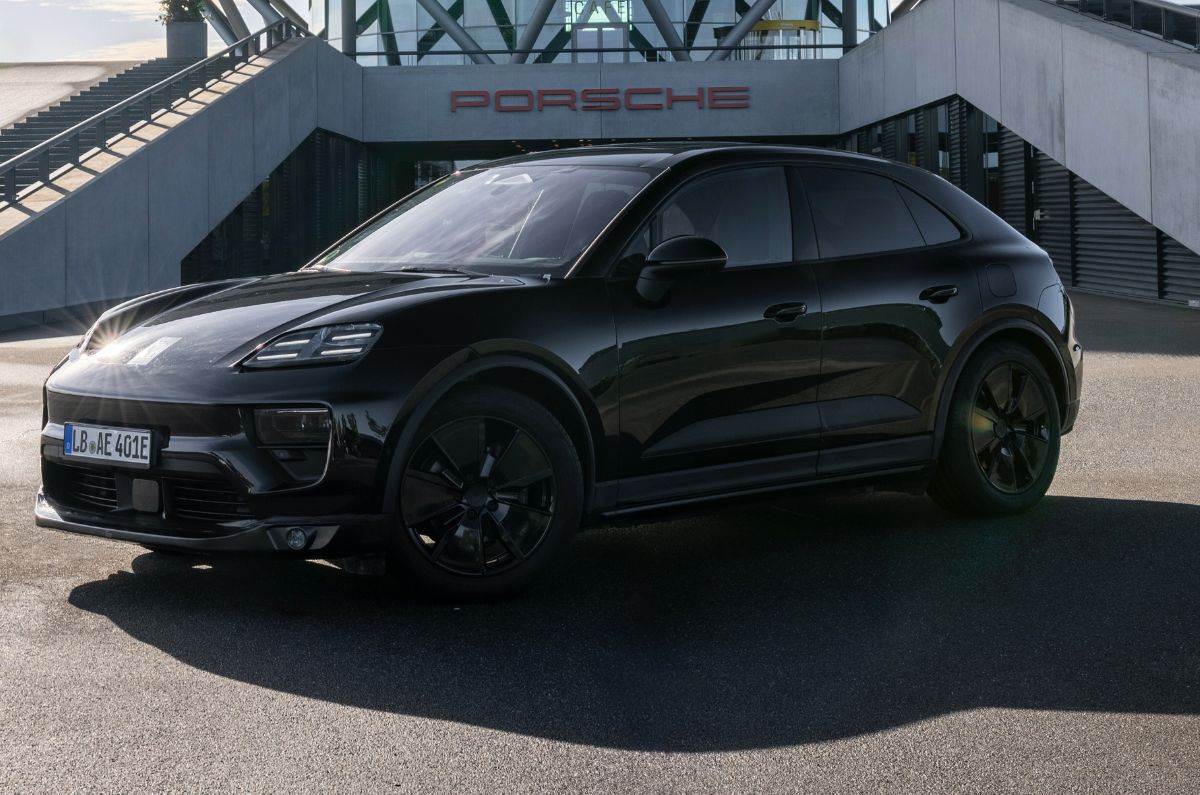 Macan is the first Porsche legacy nameplate to get the all-electric treatment.
Macan is the first Porsche legacy nameplate to get the all-electric treatment.Porsche Macan EV platform, battery and exterior design
While the current Macan will continue to be on sale alongside the EV, just like the Taycan and Panamera co-exist, the Macan EV will have its work cut out. On its wide and strong shoulders sits the future success of Porsche’s EV range. Built on an updated version of Porsche and Audi’s Premium Platform Electric (PPE), the Macan EV runs an 800-volt architecture, similar to that of the Taycan for faster charging, better performance and greater efficiency. The Macan’s other big piece of hardware is the 100kWh battery, which Porsche says will be supplied as standard. The battery consists of 12 modules with prismatic cells, the ratio of nickel, cobalt and manganese standing at 8:1:1.
To allow for higher switching frequencies, Porsche has also used silicon carbide (SiC) as the semiconductor in the rear axle. And thanks to the 800-volt technology, the Macan EV can be charged at up to 270kW. This means the battery can be charged from 10 to 80 percent in less than 22 minutes, a figure similar to that of the Lotus Eletre. If the charging station only operates at 400 volts, the Macan virtually divides the battery pack into two 400-volt units (that run in parallel), so they can be charged faster. Also interesting is the Integrated Power Box (IPB) – it combines three components, the on-board AC charger, the high-voltage heater and the DC/DC converter, making for a lighter, more compact unit.
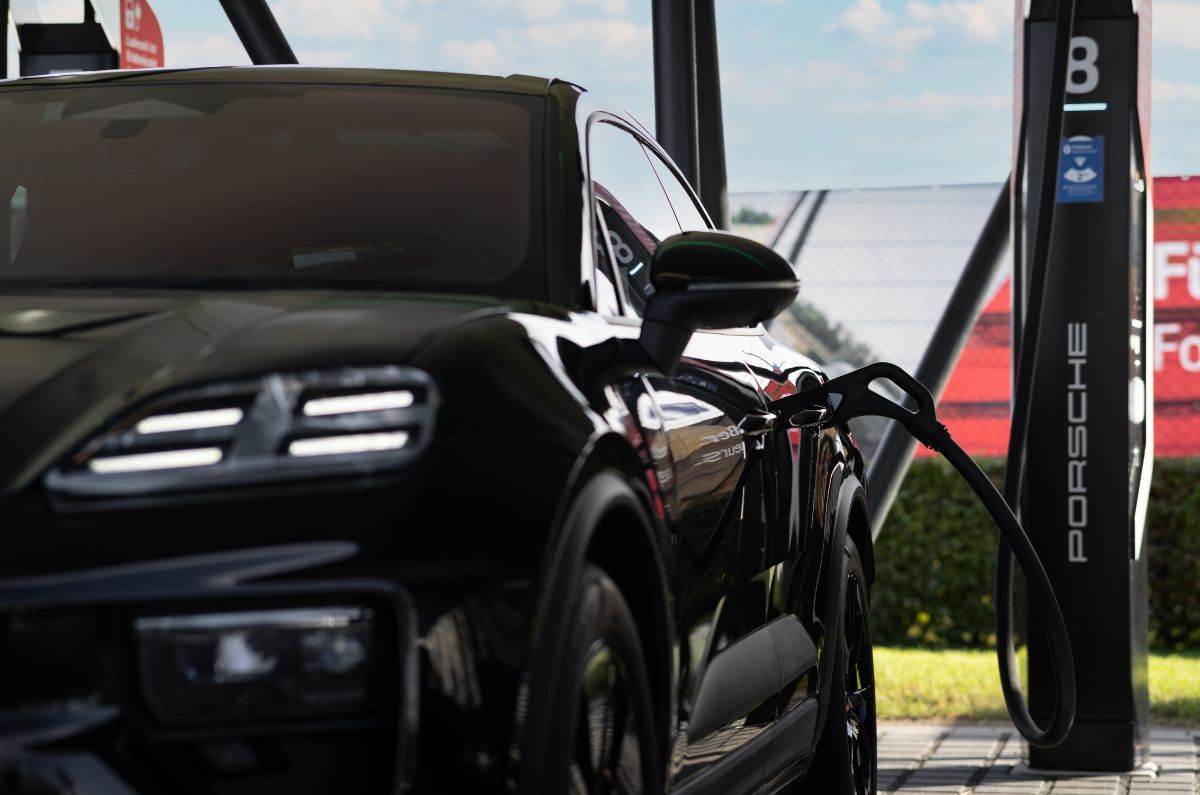 The battery can be charged from 10 to 80 percent in less than 22 minutes.
The battery can be charged from 10 to 80 percent in less than 22 minutes.While we couldn’t see much due to all the camouflaging, what’s evident is that the nose will get Porsche’s recently elevated headlight-pod look. The split headlights are also likely to be similar to that of the Taycan. The profile of the car looks a bit lower slung and the doors are now pillarless. Also evident are bigger wheel wells, and there seems to be a larger multi-stage spoiler in the rear.
Porsche Macan EV motors and suspension
The PPE platform allows for a wide range of models with rear- and all-wheel drive, as well as models with staggered performance levels. The top-ranging Macan EV, for now, will get 612hp and 1,000Nm of torque. New-age permanent magnet synchronous motors are used for maximum power density. and what’s new over the Taycan is that a larger capacity water-cooling jacket is used. This keeps the e-motor more stable when loaded up and asked to deliver max power for long stretches. Also, like the Taycan, the magnets within the rotors (inside the motor) get double V lamination and the wires of the stators using the hairpin method, for a higher percentage of copper.
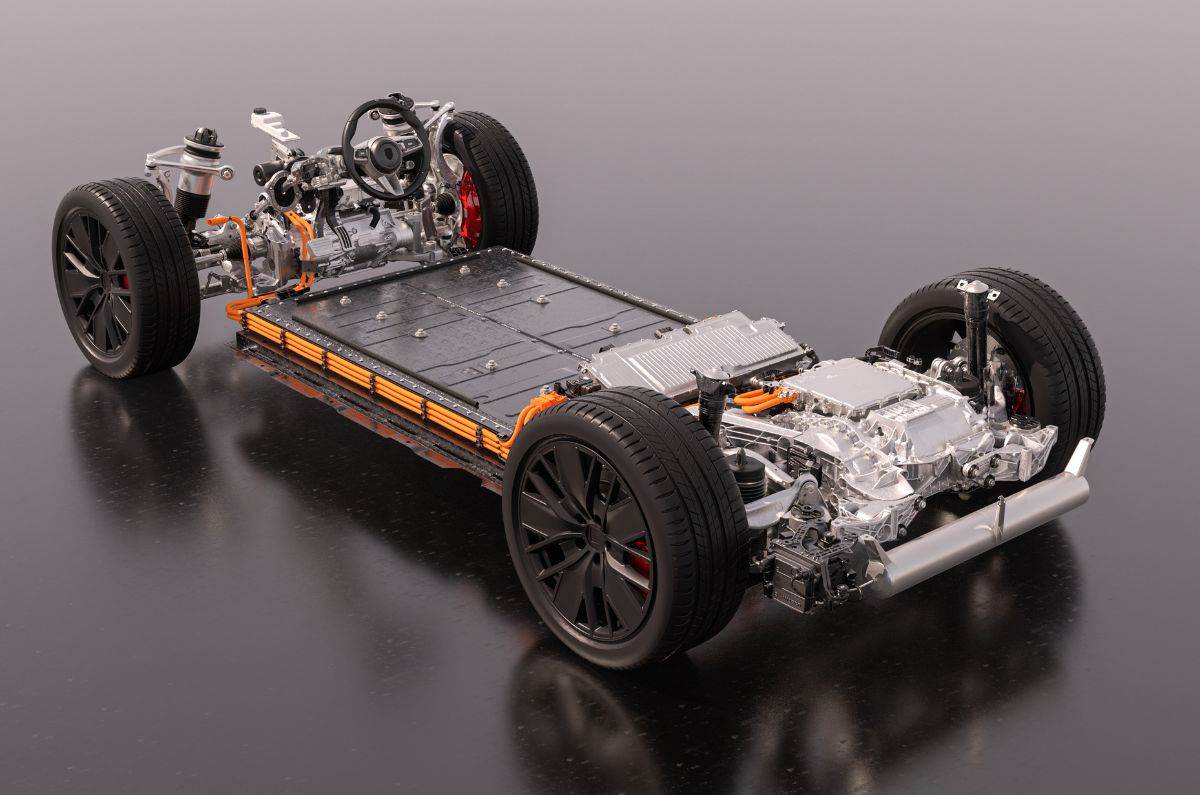 The Macan EV has a slight rear weight bias; it’s a Porsche after all.
The Macan EV has a slight rear weight bias; it’s a Porsche after all. What’s interesting is that Porsche has chosen to give the Macan EV a slight rear weight bias. The electric motor is placed well behind the rear axle so as to give the Macan EV a 48 to 52 percent front/rear ratio. Power is also sent to the wheels via a two-stage single-speed transmission. Instead of one large gear wheel, the transmission utilises two smaller wheels, hence two-stage, and this enables a particularly compact design. Fast switching also allows the Macan EV to be predominantly rear-wheel drive, with the intervention of the front axle delayed for the most part till the last moment.
The Macan can be bought with both air springs and steel springs. Two-way dampers are also specified with this car and offer a damping valve for both compression and rebound. In the front, the Macan EV has a double wishbone suspension, with a multi-link setup at the rear. The latter is connected to the body via an ‘elastically mounted’ sub-frame. In addition, the range-topping model also comes with Porsche Torque Vectoring Plus and an electronically controlled differential lock on the rear axle. A first for the midsize SUV is rear-axle steering. The suspension has also been specifically set up with the heavy but low-slung battery forming part of the dynamic package.
Porsche Macan EV ride & handling
Riding shotgun in a Macan EV is a transformational moment. It reminds me of being taken for a drive in an early Nissan GT-R prototype, the raw pace of the four-wheel-drive, turbo-charged sportscar and the leech-like grip displaying an all-new rung in the ladder of performance. The Macan EV too is demonstrated on a track, and here in Leipzig in Germany, the track consists of a collection of corners from the best tracks around the world.
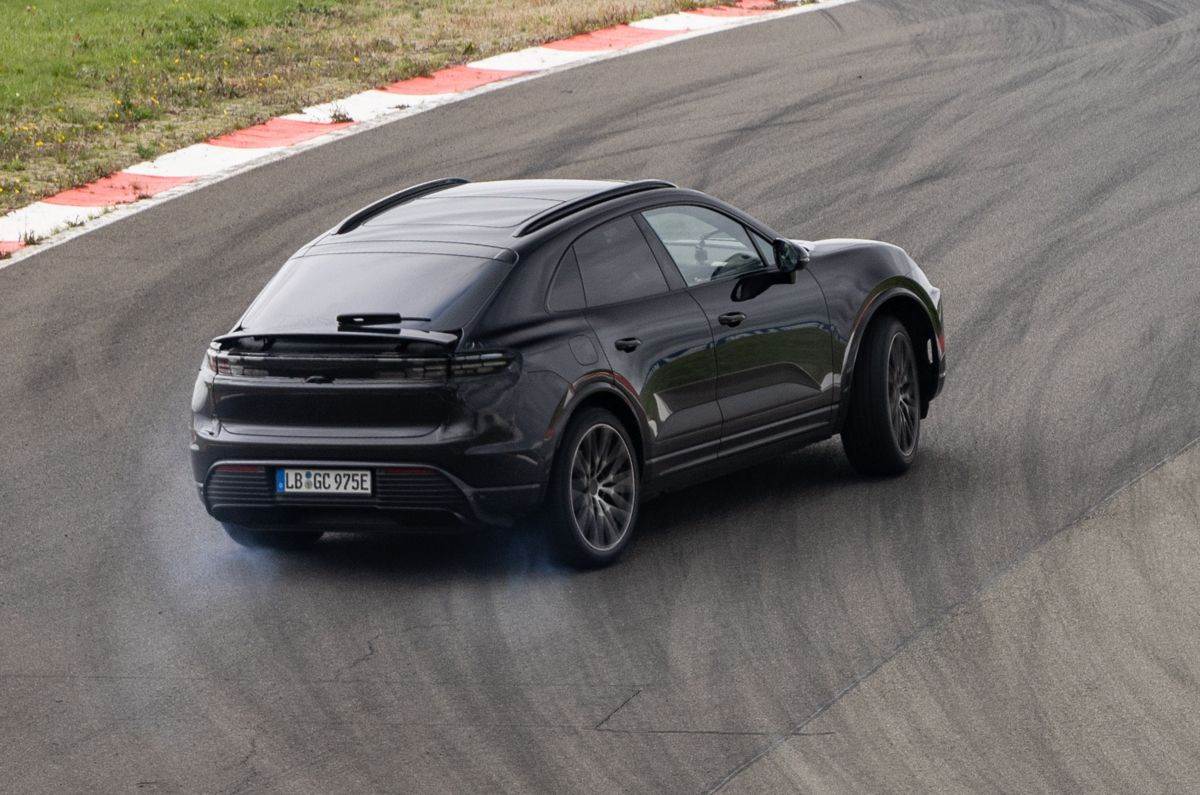 The Macan EV gets rear-axle steering.
The Macan EV gets rear-axle steering.First up, however, acceleration from launch. Explosive is an understatement and the G force is so high, I involuntarily clench my abs as I gasp for breath. The Macan should weigh between 2.2 and 2.3 tonnes and with 1,000Nm of torque propelling it forward, expect supercar matching sprint times.
As soon as we enter the track, the test driver also makes full use of the 612hp, and the rear-wheel steering and the torque vectoring. He ‘backs’ the Macan EV into a long righthander, lifting off the accelerator and allowing the rear to come around, provoking a slide on purpose. And then what follows are some deft flicks from the steering wheel and some very purposeful prods on the right pedal just to keep the slide going. The very Porsche-like weight distribution of the Macan EV sure must help.
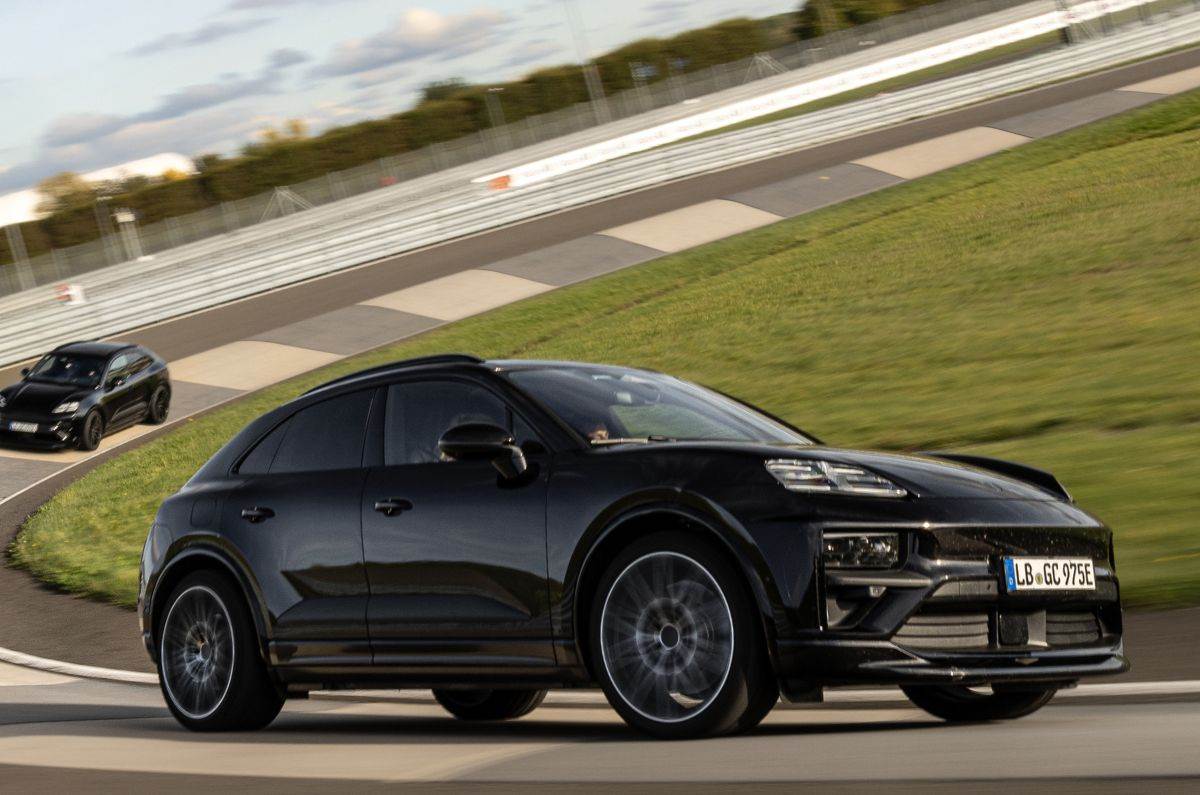 Top-of-the-line variants get 612hp and 1,000Nm of torque.
Top-of-the-line variants get 612hp and 1,000Nm of torque.“What’s it like?” I ask, innocently. “Are the low-slung battery and lightning quick e-motors making it easier to slide?” Pat comes the reply: “Absolutely”. Needless to say, it feels like loads and loads of fun, and then after executing some neat, tidy and blisteringly quick corners, the test driver proceeds to execute some more lurid slides. The Macan is then even driven over rough ground; but here in Sport, you really can feel every lump and bump on the surface.
Porsche Macan EV: what to expect
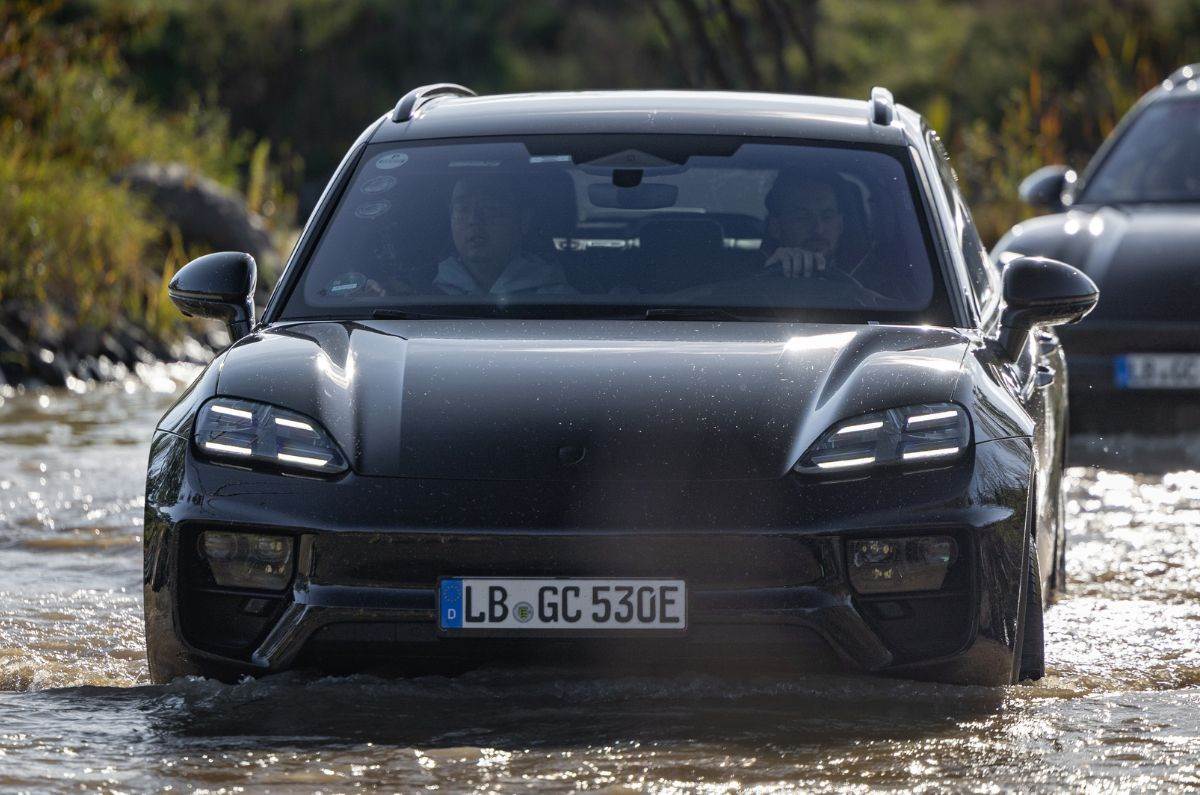
While it is too early to be specific, this is likely to be one of Porsche’s most fun cars yet. Fast, agile and clearly playful, it’s expected to be priced upwards of Rs 1.4 crore for the Turbo variant and could be launched in India in the middle of 2024. It should be everything you’d expect from a Porsche electric and more.
Hey Tesla, here comes Porsche… again.
























